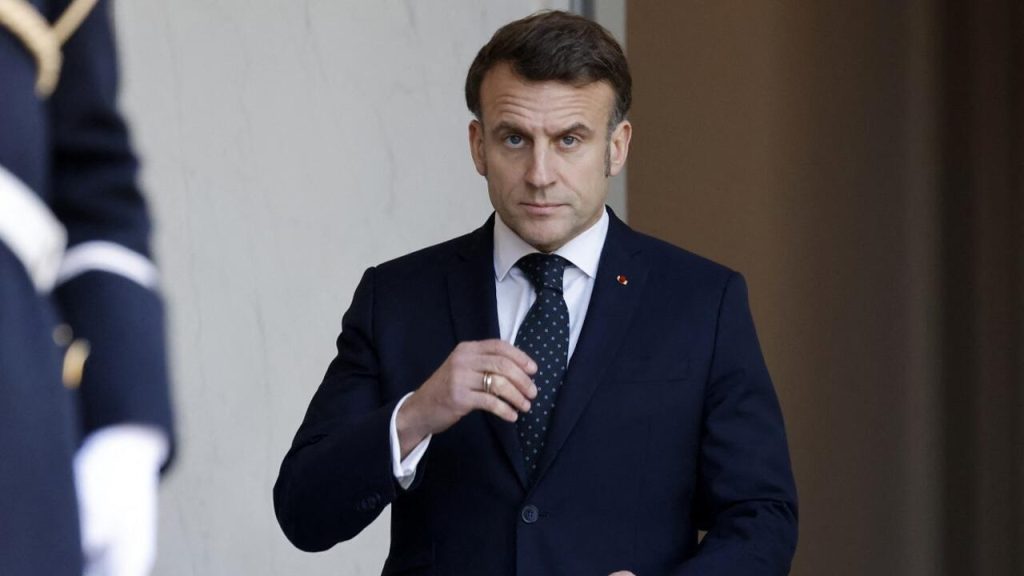Twenty-six nations have pledged to provide postwar security guarantees to Ukraine, including an international force operating on land, at sea and in the air, French President Emmanuel Macron announced following a summit in Paris.
Speaking alongside Ukrainian President Volodymyr Zelenskyy at the Élysée Palace, Macron said the guarantees would be deployed “the day the conflict stops” to prevent any renewed major aggression. He stressed that the troops would not be stationed on the frontline.
Macron initially stated that all 26 countries would deploy forces to Ukraine, but later clarified that some would contribute without entering Ukrainian territory, for example by training and equipping Kyiv’s forces. He did not disclose the number of troops involved.
President Zelenskyy welcomed the announcement, describing it as “the first such serious concrete step” in a long time.
The United States’ contribution to the guarantees is expected to be finalised in the coming days. Kremlin spokesperson Dmitry Peskov dismissed the plan, saying Western countries “cannot” provide security guarantees acceptable to Russia.
The Paris meeting brought together 35 leaders from the “coalition of the willing”, largely European nations, to finalise the guarantees and seek US backing. Several countries, including Germany, Spain and Italy, have so far declined to commit troops, preferring to focus on financing, arming and training Ukrainian forces.
European leaders have been concerned that US President Donald Trump might pressure Ukraine into a settlement involving territorial concessions. Following lobbying from European capitals, Trump claimed to have secured Russian agreement for direct talks between President Putin and President Zelenskyy, but Moscow denied making such a commitment and reiterated its demands for Ukrainian territorial surrender and a pledge never to join NATO.
President Trump had set a 1 September deadline for a meeting between the two leaders, though he is known for disregarding such deadlines. He has expressed disappointment with Putin, calling the war “senseless”, but has yet to translate his frustration into a coordinated economic strategy against Russia.
Europe has been urging Washington to impose sweeping sanctions on countries importing Russian oil. The recent US decision to impose 50% tariffs on Indian imports, partly due to its purchases of Russian oil, has strained relations with New Delhi and pushed Prime Minister Narendra Modi closer to Moscow and Beijing.
The US was represented at the Paris talks by special envoy Steve Witkoff, who also met President Zelenskyy separately. UK Prime Minister Sir Keir Starmer’s office said further pressure must be applied on Mr Putin to secure a cessation of hostilities, warning that the Russian leader “could not be trusted”.
Russia has stated it will not tolerate European troops in postwar Ukraine. The coalition supporting Kyiv includes around 30 nations, among them Canada, Australia and Japan. While it has met repeatedly, no detailed plan of action has been published, reflecting divisions and uncertainty over the US role.
In a recent development, the US State Department confirmed the delivery of 3,350 ERAM long-range cruise missiles to Ukraine, valued at $825 million, funded by Denmark, the Netherlands, Norway and the US. The missiles have a range comparable to Franco-British Scalp-EG systems already used by Ukraine against targets in Crimea and Russia’s Kursk region.
President Zelenskyy said there were no signs that Russia wished to end the war. NATO Secretary General Mark Rutte insisted it was not for Putin to decide whether European troops would be stationed in Ukraine, while German Chancellor Friedrich Merz described the Russian leader as “the most severe war criminal of our time”.
In Beijing this week, Putin attended a military parade with Chinese President Xi Jinping, claiming Russian forces were advancing “on all fronts”. However, economic pressures are mounting. Sberbank chief German Gref warned that the Russian economy was stagnating and risked recession unless interest rates were cut.
Russia’s war economy grew by 4.1% in 2023 and 4.3% in 2024, but growth is slowing sharply under the strain of high interest rates aimed at curbing inflation.



